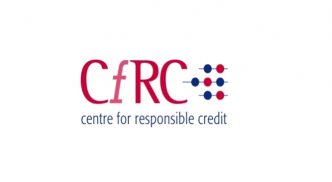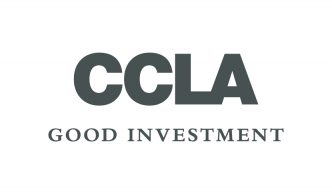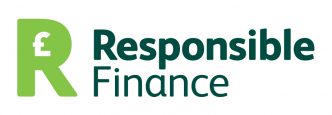Heading into the 2017 general election, financial exclusion remains a persistent problem in the UK. Although the UK stands among the world’s leaders in the maturity of its financial services markets, including in the use of FinTech, millions of UK households remain without access to affordable or appropriate services[1]. Financial exclusion seriously undermines the ability of such households to manage cash-flow pressures, raise funds for investment and accrue savings, including pensions, which would improve their financial well-being and build their resilience to future economic shocks.

Financial exclusion was recognised as a policy problem by Government early as the late 1990s and previous governments have made attempts to tackle it. These initiatives have included supporting the disclosure of lending data by the main high street banks to understand patterns of lending across the UK, lowering barriers to entry to the financial services markets to increase competition, investing in credit unions and other not for profit providers of responsible finance, including financial education in the secondary school curriculum, and encouraging high street banks to allow small business and personal customers to bank at their local post office.
Despite these compensatory initiatives, changes to regulation and increased competition in the UK’s banking sector since that time, the evidence continues to show that little progress has been made. Financial exclusion continues to be a major hurdle not only for the individuals who experience it, but also for the communities in which they live – depressing economic growth and contributing to widening wealth inequalities.
More needs to be done if every household, adult and business is to have access to an affordable and appropriate package of financial products and services, including:
- A transactional account
- A savings scheme
- Affordable credit
- Appropriate access to banking
- Insurance
- Independent money management advice and better financial skills
To address the ongoing problem of financial exclusion in the UK, the Community Investment Coalition calls on all political parties to adopt a strategic approach to tackling financial exclusion by adopting the following commitments.
Commitments
The Financial Conduct Authority should be required to conduct a review of the extent to which low to middle income communities are able to access affordable and appropriate financial products, including by providing a detailed analysis of the current take up of these in local communities.
Building on this analysis, the Government should undertake a cross-departmental review of community finance provision across the UK to:
- Understand the impact of financial exclusion and a lack of household financial resilience on the delivery of its other policy priorities
- Assess the strengths and weaknesses of current community finance providers and identify how provision can be improved
- Explicitly address failings in the regulatory framework and social investment sector which are holding back the development of the community finance sector at the current time (including regulators having an express duty to ensure access to affordable and appropriate financial products and services for low to middle income households, and a ‘pipeline’ of social investment which encourages new innovations and helps these to get to market and scale)
- Encourage FinTech innovation that benefits people on low to middle incomes (for example, encouraging investment in FinTech solutions delivered through the responsible finance sector)
Extend the type cost cap imposed on payday-lending in the last Parliament to other areas of the consumer credit market, including the rent-to-own and door-to-door moneylending sectors.
Make improvements to the current voluntary framework for the disclosure of lending data by the main banks. This should include ensuring data is released on the number of people borrowing in local communities as well as, as currently, the outstanding stock of debt. The scope of the disclosure framework should also be extended to cover overdraft and credit card lending from the main banks and other lenders.
Jennifer Tankard
Director, CIC
CIC Partners
 The Centre for Responsible Credit (CfRC) is a dedicated unit established within the Centre for Economic and Social Inclusion to: monitor the development of credit markets; research models of responsible provision and promote policy responses which protect the long-term interests of households.
The Centre for Responsible Credit (CfRC) is a dedicated unit established within the Centre for Economic and Social Inclusion to: monitor the development of credit markets; research models of responsible provision and promote policy responses which protect the long-term interests of households.
 CCLA manages money for more charities than any other fund manager in the UK and we are owned by our not-for-profit clients. We engage with the banking sector every day on behalf of our charity and local authority clients, who are concerned with issues that may affect shareholder value, but also wish to see account taken of their ethical investment concerns. CCLA is ranked top manager of ethical and responsible investment funds in the UK by assets under management.
CCLA manages money for more charities than any other fund manager in the UK and we are owned by our not-for-profit clients. We engage with the banking sector every day on behalf of our charity and local authority clients, who are concerned with issues that may affect shareholder value, but also wish to see account taken of their ethical investment concerns. CCLA is ranked top manager of ethical and responsible investment funds in the UK by assets under management.
 Responsible Finance’s mission is to support the development of thriving and sustainable responsible finance sector that provides finance for disadvantaged and underserved communities and as a consequence contribute to the increasing prosperity of these communities.
Responsible Finance’s mission is to support the development of thriving and sustainable responsible finance sector that provides finance for disadvantaged and underserved communities and as a consequence contribute to the increasing prosperity of these communities.
[1] Financial exclusion and a lack of financial resilience is a major problem in the UK. 13 million people do not have enough savings to support them for a month, if they experienced a 25 per cent cut in income; up to 8.8 million people are over-indebted; and 50 per cent of households in the bottom half of the income distribution do not have home contents insurance. Nearly two million adults still do not have a bank account. Without access to affordable and appropriate financial services people struggle to participate in the mainstream economy. Access to a basic package of financial services, including affordable credit, is essential to modern life, as employers and government agencies increasingly move away from cash and cheques towards electronic payments. Similarly, many small and micro businesses also struggle to access appropriate financial services, which impacts on their sustainability and ability to grow. Effective tools for savings, payments and accessing credit and insurance can help people avoid and escape poverty and get through a crisis without falling into debt. It can help businesses to survive and grow and not slide into bankruptcy, should a crisis occur.
